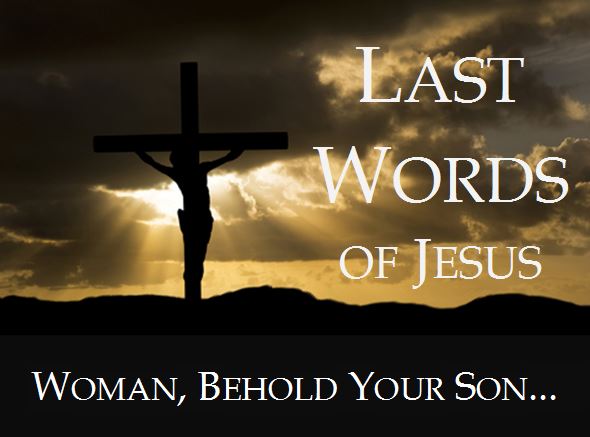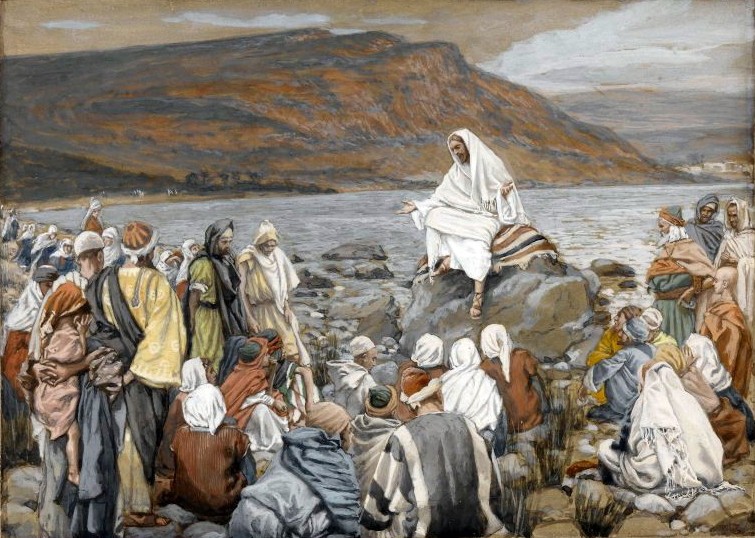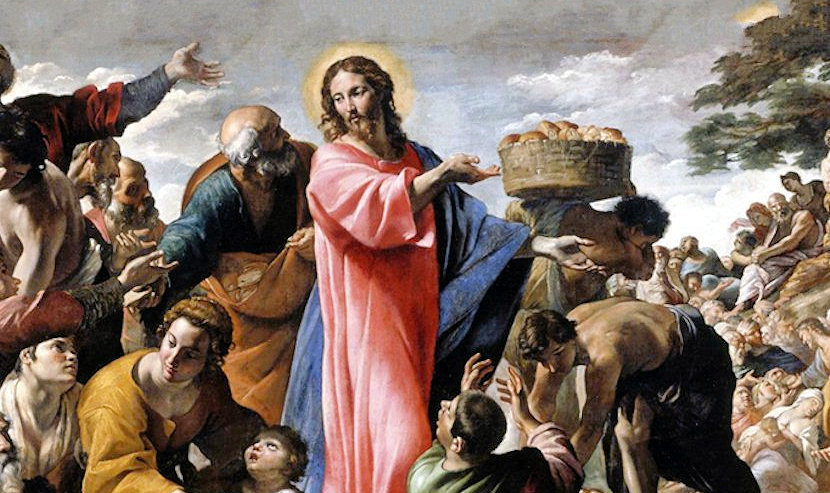Daily Reading & Meditation: Monday (May 21)

How US Churches are Celebrating Mary, Mother of the Church
May 21, 2018
Saint of the Day for May 21: St. Cristóbal Magallanes and Companions (d. between 1915 and 1937)
May 21, 2018
Woman, behold, your son! Disciple, behold, your mother!
Author Don Schwager – Scripture: John 19:25-34 (alternate reading: Mark 9:14-29)
25b Standing by the cross of Jesus were his mother, and his mother’s sister, Mary the wife of Clopas, and Mary Magdalene. 26 When Jesus saw his mother, and the disciple whom he loved standing near, he said to his mother, “Woman, behold, your son!” 27 Then he said to the disciple, “Behold, your mother!” And from that hour the disciple took her to his own home. 28 After this Jesus, knowing that all was now finished, said (to fulfil the scripture), “I thirst.” 29 A bowl full of vinegar stood there; so they put a sponge full of the vinegar on hyssop and held it to his mouth. 30 When son,Jesus had received the vinegar, he said, “It is finished”; and he bowed his head and gave up his spirit. 31 Since it was the day of Preparation, in order to prevent the bodies from remaining on the cross on the sabbath (for that sabbath was a high day), the Jews asked Pilate that their legs might be broken, and that they might be taken away. 32 So the soldiers came and broke the legs of the first, and of the other who had been crucified with him; 33 but when they came to Jesus and saw that he was already dead, they did not break his legs. 34 But one of the soldiers pierced his side with a spear, and at once there came out blood and water.
Old Testament Reading: Genesis 3:9-15,20
9 But the LORD God called to the man, and said to him, “Where are you?” 10 And he said, “I heard the sound of you in the garden, and I was afraid, because I was naked; and I hid myself.” 11 He said, “Who told you that you were naked? Have you eaten of the tree of which I commanded you not to eat?” 12 The man said, “The woman whom you gave to be with me, she gave me fruit of the tree, and I ate.” 13 Then the LORD God said to the woman, “What is this that you have done?” The woman said, “The serpent beguiled me, and I ate.” 14 The LORD God said to the serpent, “Because you have done this, cursed are you above all cattle, and above all wild animals; upon your belly you shall go, and dust you shall eat all the days of your life. 15 I will put enmity between you and the woman, and between your seed and her seed; he shall bruise your head, and you shall bruise his heel.” 20 The man called his wife’s name Eve, because she was the mother of all living.
Meditation: Why was it necessary for the Son of God to be born of a virgin mother – only to suffer rejection, betrayal, and cruel death on a cross? God’s love knows no bounds. He created the human race in love for love – to be united with him and with one another in a bond of unbreakable love, peace, and friendship. True love risks all and gives all for the beloved. With the gift of love and fruit-bearing life God also gave freedom and responsibility – freedom to choose for good or for evil, for community or for division, for peace or for strife, for life or for death.
God’s gift of love – broken by sin and rebellion
Adam and Eve, the man and woman God created to be the beginning of a people who were made in the image and likeness of God, received everything they needed for life, happiness, and friendship with God. God provided a dwelling place specially made for them – a Garden of Paradise (also called Eden in Genesis 22:8) which was full of the fruit of his creation. God took great delight in his son Adam and Eve his wife – he walked with them daily in the garden so they could grow in the knowledge of his great love and wisdom.
God allowed the tempter, whom Scripture calls the devil and Satan, the father of lies, to test them so they could freely choose whom they would serve and obey. Satan tricked them into believing that they could be all powerful and wise, like God, on their own terms and conditions, according to their own desires and preferences (Genesis 3:4-6). Like Satan and the fallen angels who rebelled against God, Adam and Eve thought they could be equal with God and chart their own course for happiness and life together. They choose to believe Satan’s word over God’s word – a choice that opened the door to sin, rebellion, and separation from God.
Their fall resulted in a grievous wound which only God could heal and restore to wholeness. God in his merciful love and wise judgment, disciplined them for their own good, to lead them to repentance, purification, and restoration of friendship with God. God did not leave them in sin and darkness – he promised to send them a Redeemer who would restore them and their descendants to fullness of life with God.
The promised Redeemer who comes to restore our fallen humanity
How did God fulfill his promise to restore a broken and fallen humanity? The prophet Isaiah foretold that God himself would send his people a Redeemer, born of a virgin mother from the house of David (Isaiah 7:14), who would willingly undergo affliction and chastisement to the point of shedding his blood to make atonement for their sins (Isaiah 53:1-12, and Isaiah 50:4-8; 52:13-15).
In the wonderous cross of Christ, who shed his blood for our sins, we see God’s unfolding plan of restoration for the human race. Through his obedience to the Father’s will and the willing sacrifice of his own life for our sake, he reversed the curse of our first parents’ sin and won for us pardon and abundant life. John tells us in his Gospel account that “God so loved the world that he gave us his only Son, that whoever believes in him should not perish but have eternal life” (John 3:16). God the Son, the Lord Jesus Christ, humbled himself by taking on human flesh in the womb of the virgin Mary, so he could become one with us in our humanity and offer himself as the perfect sacrifice for our sins and the sin of he world.
Christ is the new Adam – who creates a new humanity through his cross and resurrection
Paul the Apostle tells us that Jesus Christ is the new Adam who begets a new humanity and a new creation (Romans 5:12-18, 2 Corinthians 15:7) through his victory on the cross and his resurrection. That is why Jesus explained to Nicodemus that we must be born anew (John 3:3) – of water and the Spirit (John 3:5,8).
Woman, behold, your son! Disciple, behold, your mother!
As Jesus hung on the cross at Calvary, he looked down and saw his mother and John the beloved disciple standing at the foot of the cross. Jesus said, “Woman, behold your son,” and then to John he said, “behold, your mother” (John 19:26-27). John takes Mary as his spiritual mother, and Mary takes John as her spiritual son.
Why did Jesus address Mary as “Woman” rather than “mother” (see also Jesus addressing Mary as “Woman” in John 2:4). Jesus may be alluding to the beginning of creation in Genesis when Adam addressed Eve first as Woman, “This at last is bone of my bones and flesh of my flesh. She shall be called Woman, because she was taken out of Man” (Genesis 2:23). Adam later called her “Eve” because she became the “mother of all living” (Genesis 3:20).
Mary’s mission is inseparably linked with the mission of her Son, the Lord Jesus
Mary’s mission as the bearer of the Son of God (theo-tokos which means God-bearer in Greek) is inseparably linked with the mission of her Son the Lord Jesus Christ. Through the grace and gift of the Holy Spirit Mary becomes the first disciple and a spiritual mother of a new humanity who are born again through her son, the Lord Jesus.
To become the mother of the Savior, Mary was enriched by God with the gifts of the Holy Spirit to enable her to assume this awesome role. A number of early church fathers saw Mary as a new Eve who cooperated with her Son’s mission through her faith and devotion to God’s word, and her prompt “yes” to God’s will.
Irenaeus, an early second century bishop of Lyons (130-200 AD), described Mary’s role in the service of her Son’s mission:
“The Lord, coming into his own creation in visible form, was sustained by his own creation which he himself sustains in being. His obedience on the tree of the cross reversed the disobedience at the tree in Eden; the good news of the truth announced by an angel to Mary, a virgin subject to a husband, undid the evil lie that seduced Eve, a virgin espoused to a husband…
As Eve was seduced by the word of an angel and so fled from God after disobeying his word, Mary in her turn was given the good news by the word of an angel, and bore God in obedience to his word. As Eve was seduced into disobedience to God, so Mary was persuaded into obedience to God; thus the Virgin Mary became the advocate of the virgin Eve…
The knot of Eve’s disobedience was untied by Mary’s obedience: what the virgin Eve bound through her disbelief, Mary loosened by her faith”
(quotes from Against Heresies (Lib. 5, 19, 1; 20, 2; 21,1: SC 153, 248-250. 260-264)
Throughout her life Mary remained steadfast and faithful to the call and mission God entrusted to her, as the mother of the Son of God who took flesh in her womb. She is the first Christian because she accepted the Gospel and gave her “yes” to God’s plan of redemption. She followed her son to the cross and she prayed for the outpouring of the Holy Spirit upon all the disciples at Pentecost. She is a model for us of faith and obedience, hope and perseverance, and love and fidelity. Are you ready to take up your cross and follow the Lord Jesus in his way of love and sacrifice?
God gives us the grace to say “yes” to his will and to his transforming work in our lives
What is the key that unlocks the power of God’s kingdom and his abundant life in our personal lives? Faith is the free gift of God for all who accept his Son as Lord and Redeemer. Our faith and trust in the Lord Jesus opens the door to all the promises of God who find their fulfillment in Christ. God gives us all the grace and strength we need and he expects us to respond with the same willing obedience and heart-felt trust as Mary did. When God commands he also gives the strength, and means to respond. We can either yield to his grace or resist and go our own way. Do you believe in God’s promises and do you yield to his grace?
“Heavenly Father, you offer us abundant grace, mercy, and forgiveness through your Son, Our Lord Jesus Christ. Help me to live a grace-filled life as Mary did by believing in your promises and by giving you my unqualified “yes” to your will and your plan for my life.”
Psalm 87:1-3,5-7
1 On the holy mount stands the city he founded;
2 the LORD loves the gates of Zion more than all the dwelling places of Jacob.
3 Glorious things are spoken of you, O city of God. [Selah]
5 And of Zion it shall be said, “This one and that one were born in her”; for the Most High himself will establish her.
6 The LORD records as he registers the peoples, “This one was born there.” [Selah]
7 Singers and dancers alike say, “All my springs are in you.”
Daily Quote from the early church fathers: God borrows Mary’s flesh to lead humanity to glory, by an anonymous early author from the Greek church




